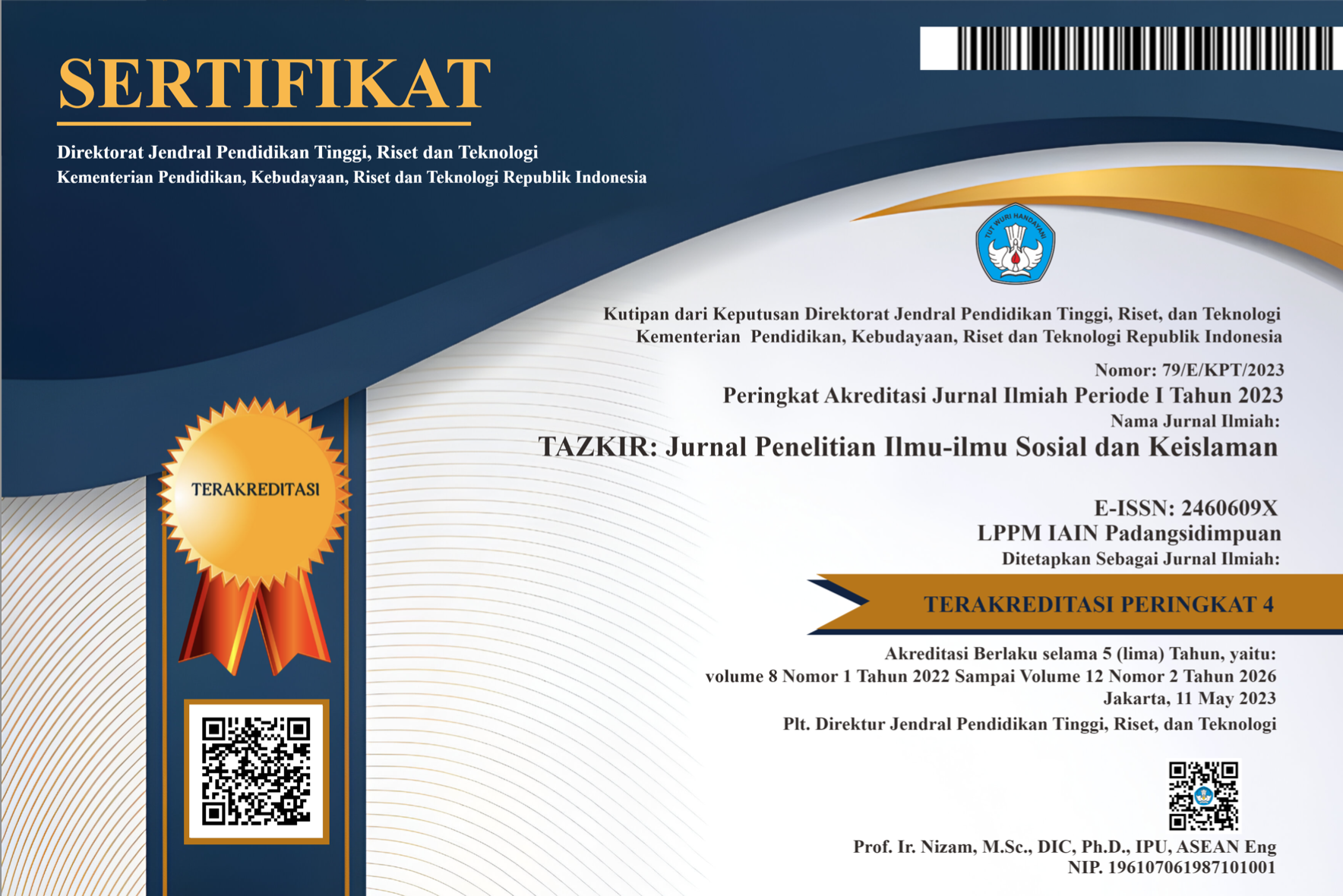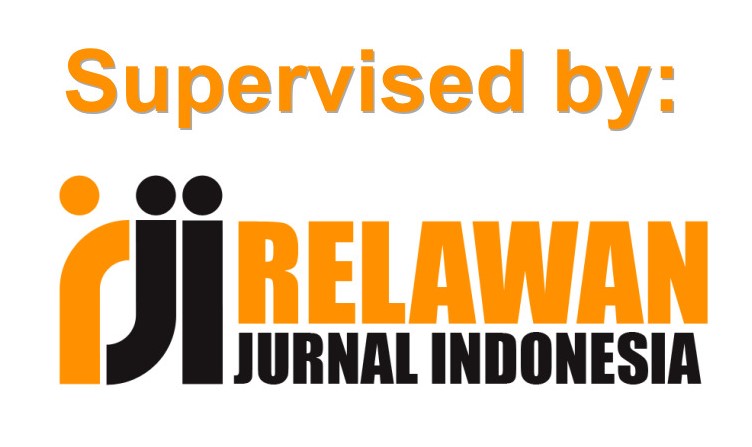Potrait Of Salafi Religion in Indonesia
Abstract
The diversity of religious sects in Indonesia requires maturity in attitude and action. In order for this diversity to make a positive contribution, the basic principles that overshadow all parties must be formulated, so that there is no assumption that what is in others is wrong while what is in ourselves and our group is the absolute truth. This research aims to describe the portrait of salafi religion in Indonesia. The research method used is a literature study. The author conducted studies from various sources ranging from historical records, previous journals and the latest mass media. All data obtained are then compiled and studied carefully to find the problems discussed. The results of this study show that the salafi generation in the modern era is quite unique and has a variety of styles. Although some of them reflect the ideology of the classical salaf generation, most of them do not reflect the way, nature and method of the salaf in interacting with religious issues, both in the nature of belief (akidah) and the rules (ibadah). In addition, there are also differences within the body of those who claim to be heirs of the salaf, which often reach the level of boycotting and even accusing them of being infidels. Although they look the same in appearance and dress, they differ in their references (idolized figures), addressing differences, tasamuh (level of tolerance) and other aspects both in principle and idhafi ta'abbudi (nuances of worship).
Keywords
Full Text:
PDFReferences
Ajib, Muhammad, 2019, Khilafiyah Antara Syeikh Bin Baaz, Syeikh al-Utsaimin dan Syeikh al-Bani rahimahumullah, Rumah Fiqih Publishing, Jakarta Selatan.
al-Qudho’i, Salamah al-Azzami, tt., Furqon al-Quran baina Shifati al-Khaliqi wa Shifati al-Akwan,Dar Ihya alTurats al-Arabi, Beirut.
Al-Thalibi, Abu Abdirrahman, 2006, Dakwah Salafiyah Dakwah Bijak, Meluruskan Sikap Keras Dai Salafi, Hujjah Press, Jakarta.
As-Sam’ani, Abu Mudhoffar, 1997, Tafsir al-Quran, tahqiq: Yasir bin Ibrahim dan Gonim bin Abbas, Dar Wathon, cet.1, Riyad.
As-Syaukani, Muhammad bin Ali, 1992, Irsyad al-Fuhul ila Tahqiqi Ilmi al-Ushul, tahqiq: Muhammad Said al-Badri, Dar Fikr, cet.1, Beirut.
Asy Syak’ah, Mustofa Muhammad, 2006, Islam Tidak Bermazhab, Gema Insani, Jakarta.
At-Thabari, Ibn Jarir, 1405, Jami’, al-Bayan ‘an Ta’wili Ayi al-Quran, Dar Fikr, vol. 18, Beirut.
Bashori, Ahmad Dumyathi, 2008, Eksistensi Islam di Timur Tengah dan Pengaruh Globalnya, Jurnal Kajian Islam al-Insan, Lembaga Kajian dan Pengembangan al-Insan, vol.3, Depok.
Hayati, Nur Rohmah, 2018, Kiprah Ormas Islam di Bidang Pendidikan, Al-Ghazali, Vol.1 No.1.
Ibn Katsir, al-Bidayah wa an-Nihayah, tt., Maktabah Ma’arif, vol. 10, Beirut.
Ibn Manzhur, Abu al-Fadhl Muhammad, 1410 H., Lisan al-Arab, Dar Shadir, Cetakan pertama, entri sa-la-fa, Beirut.
Ibn Taimiyah, tt., Kutub wa Rasail wa Fatawa Syeikh Islam Ibn Taimiyyah, tahqiq: Abdurrahman bin Muhammad an Najdi, Maktabah Ibn Taimiyyah, cet.3, vol. 5, Cairo.
Ibn Taimiyyah, 1406 H., Minhaj as-Sunnah an-Nabawiyyah, tahqiq: Dr. Muhammad Rosyad Salim, Muassasah Qutrubah, cet. 1, vol. 2.
Lubis, Sufrin Efendi, 2022, Agama dan Budaya: Dinamika Pelaksanaan Perkawinan Masyarakat Angkola di Kota Padangsidimpuan, Disertasi, UIN Sunan Gunung Djati, Bandung.
Madawi al-Rasheed, 2007, Contesting the Saudi State: Islamic Voice from a New Generation, Cambridge University Press, New York.
Madzkur, Ibrahim, 1978, Fi al-Falsafah al-Islamiyyah, Manhaj wa Tathbiqah, Dar al-Ma’arif, Mesir.
Mawardi, Marmiati, 2016, Gerakan Kemlompok Salafi Ma'had Al-Anshar Dalam Konstelasi Kebangsaan, Kementerian Agama Balai Litbang Agama, Semarang.
Mujahid bin Jubr al-Makhzumi, tt., Tafsir Mujahid, tahqiq: Abdurrahman as-Surati, al-Mansyurat al-Ilmiyah, vol. 2, Beirut.
Naupal, 2019, Badan Reading Islamic Radical Networks in West Java and Jakarta and Its Relationships with Islamic Trans-National, International Journal of Multicultural and Multireligious Understanding Jakarta International Conference on Social Sciences and Humanities, Volume 6, Special Issue 3 February.
Nazir, Moh., 2013, Metode Penelitian, Ghalia Indonesia, Bogor.
Razak, Abdur dan Anwar, Rosihan, 2006, Ilmu Kalam, Puskata Setia, Bandung.
Saad, Thablawy Mahmud, 1984, At-Tashawwuf fi Turasts Ibn Taimiyah, al-Hai al-Hadis al-Mishriyah al-Ammah li al-Kitab, Mesir.
Sugiyono, 2015, Metode Penelitian Kombinasi (Mix Methods), Alfabeta, Bandung.
Suja'i, Ahmad dan Muhammad Amir Baihaqi, 2022, Peran Ulama dan Ormas Islam dalam Pertumbuhan dan Perkembangan Pendidikan di Indonesia, Jurnal Tarbawi, Vol. 5 No. 2 Agustus.
Thomas Hegghammer, 2009, "Jihadi Salafis or Revolutionaries: On Religion and Politics in the Study of Islamist Militancy", dalam R Meijer (ed), Global Salafism: Islam's New Religious Movement, Hurst/Columbia University Press, London/New York.
Tim Harokah Islamiyah, tt., Buku Pintar Salafi Wahabi yang disusun, tp.
Wahid, Abdurrahman (ed.), 2009, Ilusi Negara Islam: Ekspansi Gerakan Islam Transnasional di Indonesia, The Wahid Institute, Jakarta.
DOI: https://doi.org/10.24952/tazkir.v10i1.11915
Refbacks
- There are currently no refbacks.
Copyright (c) 2024 Sufrin Efendi Lubis, Riim Malini Pane

This work is licensed under a Creative Commons Attribution-ShareAlike 4.0 International License.






